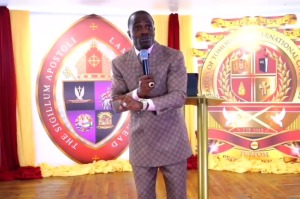Great Leaders with Good Timing
On Friday, February 25, 2005, nearly 22 months since assuming his post, sixty-nine year old Donald P. Hodel, President and CEO of Focus on the Family, announced his retirement. His decision was effective immediately.
By 5:00 PM that very day, his successor, Jim Daly, was moving personal belongings into place and by the opening of business Monday morning, the orderly transition was complete.
With Don’s initial goals and objectives met, the former Secretary of Energy and Interior noted that “some leaders enjoy their job so much that they end up staying longer than they should.” Wary of falling prey to this common temptation, Hodel wisely did what so many never do. Upon arrival, he defined his mission and upon its completion, he knew it was time to bid farewell.
Unfortunately, history suggests this tactic is more unique than it is common.
Consider the world of sports. Professional athletes know a thing or two about good timing, but all too often, the lure of past glory and a desire for affirmation and adulation seems to cloud otherwise good judgment about when to leave.
The Great Bambino, Babe Ruth, batted an embarrassing .181 in his final abbreviated season with the Boston Braves. Hall of Fame pitcher Steve Carlton didn’t know when to quit either, but it took him two full seasons and an atrocious record of fifteen wins and twenty-eight losses on five separate teams to finally decide it was time to pull the plug. The greatest fighter who ever lived, Muhammad Ali, was beaten by “a bum” at thirty-seven years of age. Following NFL legend Jim Thorpe’s final game, a newspaper reporter opined that the man who was voted the greatest athlete of the twentieth century was “a mere shadow of his former self.”
If bad timing is considered a pitfall in the sporting world, it can be an absolute disaster in our capitalistic society. A study conducted by a Boston financial research firm discovered that the average investor didn’t realize the full benefits of the last bull market because of one main miscalculation: bad timing!
Which brings to mind a question once asked of Yogi Berra at an airport. “What time is it?” asked the traveler. With a straight face, the former catcher replied, “You mean now?”
For Mr. Hodel, there was no such confusion. That’s because effective leaders begin preparing for their time of departure soon after they first arrive on scene, often by grooming their successor. In Mr. Daly, Hodel saw the seeds of the future and deliberately nurtured and developed the talent present within the organization. When he accepted the role of president and CEO in May of 2003, he didn’t know for how long he would be needed – but he knew he wouldn’t be needed as soon as the tasks were complete and a replacement was poised to take his place. There was no ego, but simply a burning desire to get the job done.
There is another critical component to finding and maintaining a sense of good timing. As a Christian, we should believe and recognize that God ordains and orchestrates even the seemingly insignificant details of our lives. If we’re deliberate about attempting to sync our watch with the Lord’s, we’re more likely to be prepared and available to step into His plan and follow His perfect will.
Prior to Mr. Hodel’s arrival, Dr. James Dobson, Focus on the Family’s founder and chairman, heard God asking him to not move on – but instead, to move over and relinquish the presidency and day to day operations of the ministry. In doing so, he began to model how other people in positions of authority might consider how to let go of what they once held so tightly. As a result of this action, James Dobson was freed up to do what the burdens of administrative responsibility prevented him from doing previously - tirelessly championing pro-family candidates and issues on the campaign trail. Even to the most skeptical observer, the results of his contribution were significant.
Indeed, often a leader must say “no” to holding on to power in order to say “yes” to the supreme and sovereign plans of God. It is the wise leader who begins to see the end in the beginning and continuously listens for direction from the Lord for when to move on.
Paul J. Batura is an Assistant to Dr. James Dobson at Focus on the Family. His new book, Gadzooks! The Highly Practical Life and Leadership Principles of Dr. James Dobson is published by Tyndale House. He can be reached at baturapj@fotf.org.




























